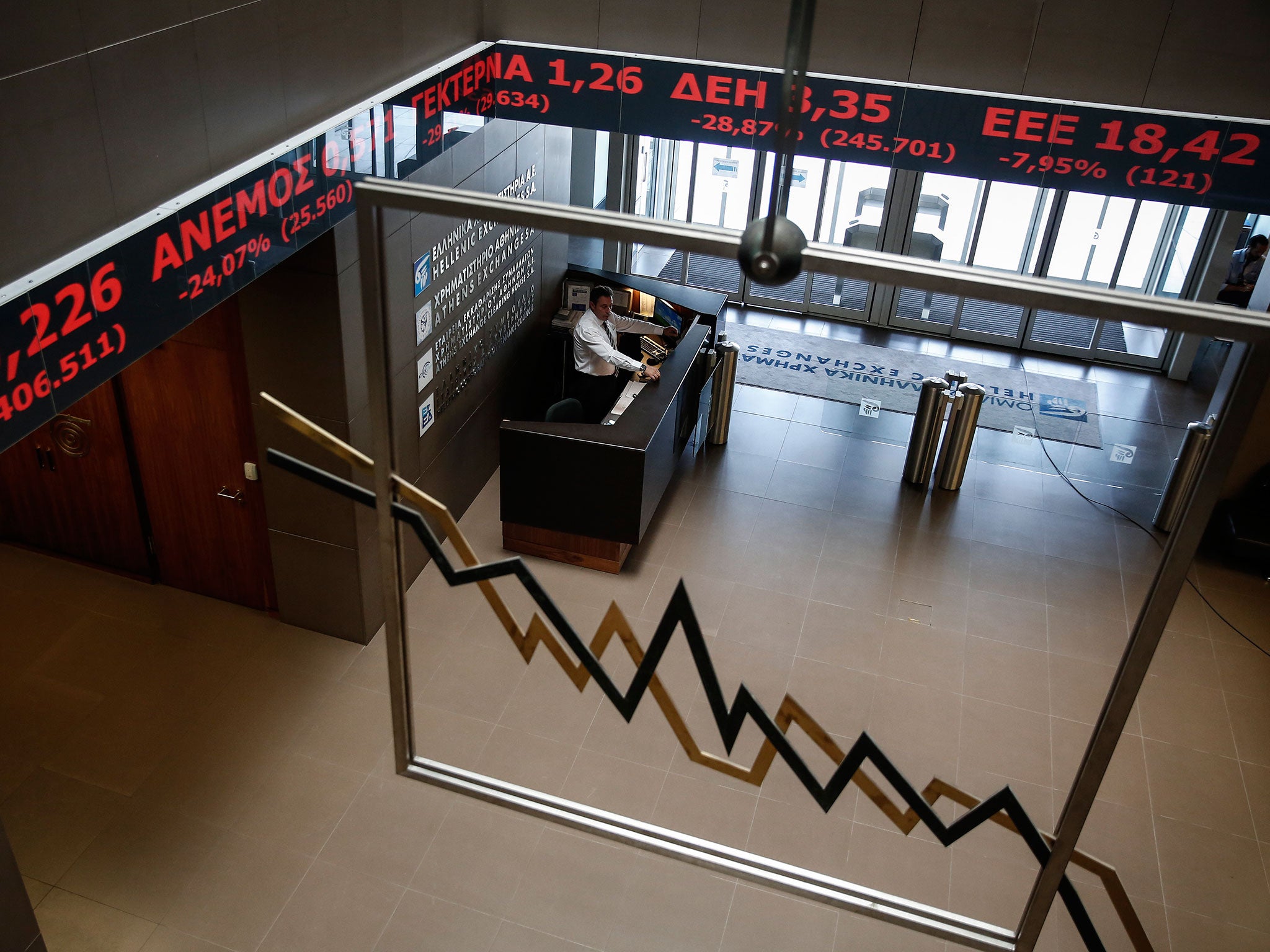Greek companies worth 85 per cent less than they were in 2007 as country's stock exchange re-opens
Within minutes of the opening bell in Athens early on 3 August, the stock exchange plunged 23 per cent

The re-opening of Greece’s stock exchange after five weeks sent the market into one of the biggest single-day nose dives in the history of stock market trading, leaving Greek companies worth 85 per cent less than they were in 2007.
Within minutes of the opening bell in Athens early on 3 August, the stock exchange plunged 23 per cent and stayed languishing at lows caused by the biggest Greek banks all falling 30 per cent – the maximum allowed collapse.
The market did recover slightly, closing down 16.23 per cent at 668.06 points, while officials and analysts urged the public to look at the market by the end of the week when it has had a chance to settle.
Athens’ trading floors were shut for five weeks when tight fiscal controls were implemented by the government, limiting the amount of cash withdrawals for citizens and shutting banks at points as negotiations over its debts continued.
The big four banks – National Bank, Piraeus Bank, Eurobank and Alpha Bank – all watched helplessly as their shares crashed, some within five minutes of the market opening, with the institutions seen as the most vulnerable.
Jasper Lawler at CMC Markets UK explained that the ongoing money problems with Greece and the EU would naturally hit bank stocks first.
He said: “It makes sense to see these kinds of declines given Greece’s flirtation with an exit from the eurozone since the stock exchange was closed five weeks ago.
“That said, dropping by over 20 per cent in a single day is almost unprecedented for the benchmark stock index of a developed country and really is an utter pasting. It puts recent moves in China to shame.
“The uncertain solvency of Greek banks had investors moving hand over fist to dump the shares as quickly as possible before the Athens stock exchange’s maximum loss for an individual issue was reached and trading halted.”
Strict controls remain in place for Greek traders who can only buy stocks, bonds, derivatives and warrants with new money from abroad or from earnings made from selling shares.
There are not restraints in place for international investors, but there remains a ban in place against short selling, where investors bet that a share price will fall, usually with borrowed money.
On the trading floor, traders said the restraints and plummeting stock made it a tough day to work. Stavros Kallinos, head asset manager at Guardian Trust, told Bloomberg: “It’s a total disaster, it’s like hell here. You can’t have a market working properly with capital controls. It will be a gradual process. We’re moving forward, a step at a time.”
As traders return to work, the months of uncertainty continue to hit Greece’s manufacturing sector, with the latest PMI snapshot showing output collapsed to its lowest ever level of 30.2 points.
Subscribe to Independent Premium to bookmark this article
Want to bookmark your favourite articles and stories to read or reference later? Start your Independent Premium subscription today.

Join our commenting forum
Join thought-provoking conversations, follow other Independent readers and see their replies